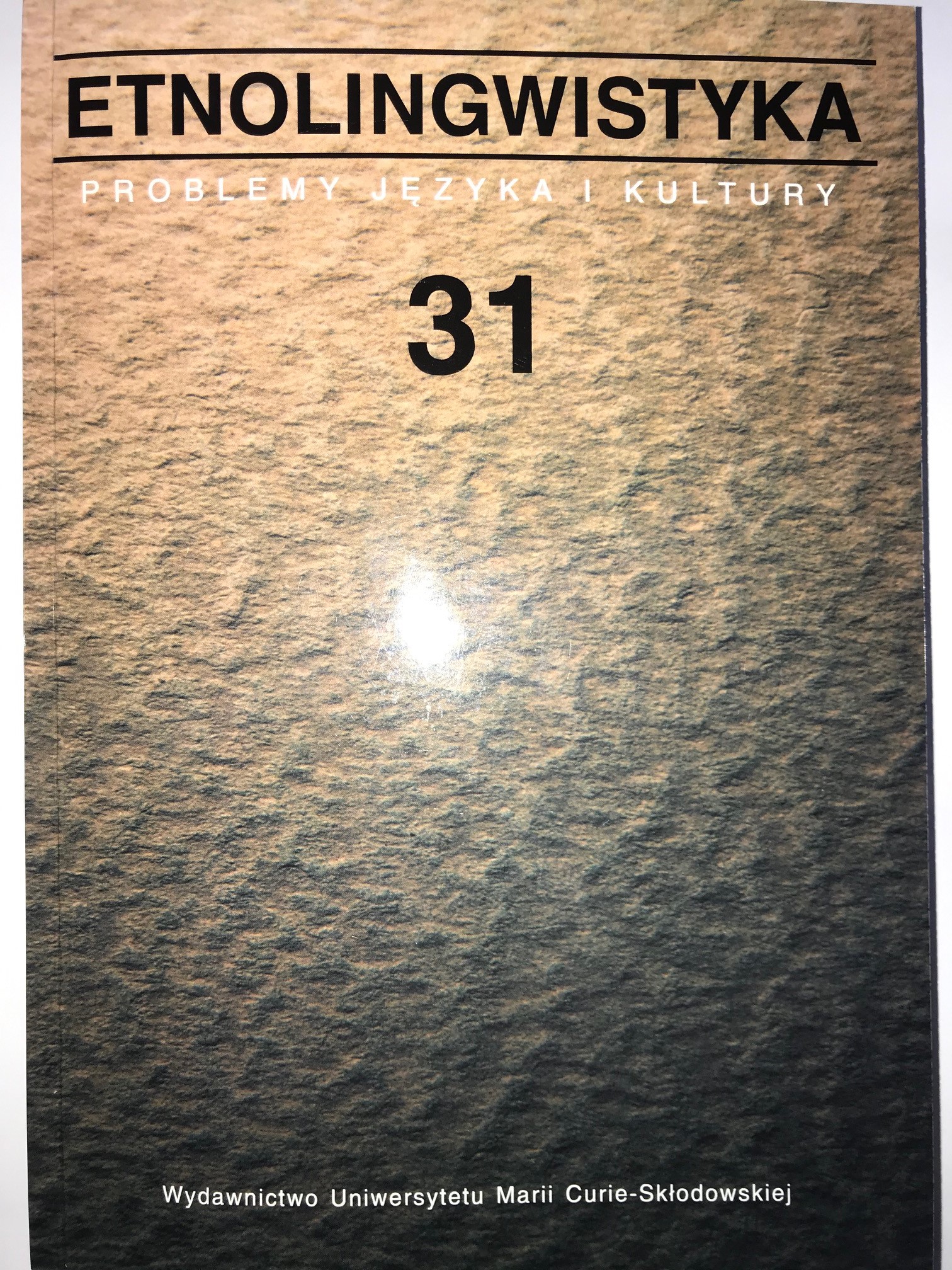Ludowe nazwy ziół w polskim językowym obrazie świata
Folk names of herbs in the onomasiological perspective
Author(s): Ewa HrycynaSubject(s): Language studies, Language and Literature Studies, Customs / Folklore, Cognitive linguistics, Cultural Anthropology / Ethnology
Published by: Wydawnictwo Naukowe Uniwersytetu Marii Curie-Sklodowskiej
Keywords: Dictionary of Folk Stereotypes and Symbols; folk herb names; onomasiological bases of herb names; word-formational analysis; etymology
Summary/Abstract: The article deals with folk names of herbs, analysed within the framework of linguistic worldview reconstruction. The author begins by referring to the general assumptions of Brent Berlin’s folk taxonomy of plants, which in her opinion can also be applied to Polish herb names. She then points out that the names entrenched in folk tradition must be distinguished from botanical, scientific names, sometimes mechanically transferred from sources in other languages. However, she makes a distinction between borrowed and assimilated names. The quantitative richness of herb names points to their high practical and cultural rank among country dwellers, but this richness (through word-formational and etymological analysis) can be reduced to a few onomasiological bases: names derived from the plant’s appearance and physical properties, the time and place of growing, or its use and cultural context (beliefs). In word-formational analysis what matters is not only the base but also affixes, which point to word-formational categories, such as names of “feature bearers” or “activities”. It is claimed that the word-formational analysis itself is insufficient and must be supported by linguistic and co-linguistic evidence.
Journal: Etnolingwistyka. Problemy Języka I Kultury
- Issue Year: 31/2019
- Issue No: 31
- Page Range: 133-145
- Page Count: 13
- Language: Polish

